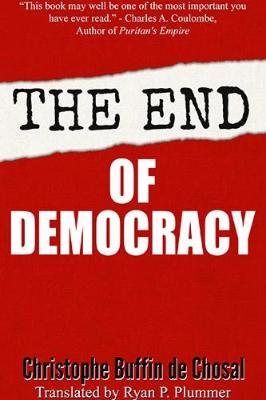This is too long and rambles but you are welcome to as much or little of it as you deem fit. Discovered Off The Menu on youtube beginning of this year. Now on Monday look forward to spending an hour or so with you and Charles. Keep up the good work and God bless you both.
"
As a history minor in university in the late 60s, developed a lifelong interest in History, mostly Military History. A few years back the Peloponnesian War caught my attention, once again read Thucydides cover to cover and many later historians’ work.
This time around one of the prior unnoticed sub-texts was the volatility of the Athenian democracy. Granted it was a direct democracy therefore lacking the supposed buffers of a representative republic but as the last few decades have proven in America, the designed in checks and balances are not working.
On multiple occasions the Athenian demos would decide one thing one day, sleep on it overnight and the very next day vote almost the complete opposite.
One author in particular opined that the Spartans were indeed fighting for “the freedom of the Greeks”, while the Athenian Delian League was in fact an Athenian Empire. The Athenian democracy was more oppressive and repressive of their allies than the supposedly retrograde Spartans.
A number of later writers who site ancient sources advise that in the past democracy was not a favored form of governance, being at best emotional, unpredictable and easily swayed – not attributes sought in an ally. At worst, it is simply mob rule; a thin reed to hang a political system on.
Christophe Buffin de Chosal’s book is more than a replay of ancient critiques of democracy, it is an in-depth analysis of why it is a flawed system that is bound to fail by its very nature.
He elucidates how is in not Marxism, secularism, feminism, modernism et al that causes the eventual failure of democracies, much like Original Sin in humans, the seeds of its destruction are sown at its inception.
One example is that those who rise to positions of power from the local school board to the leaders of nation states are invariably the least desirable folk to have making decisions. To a greater or lesser degree, they are self-promoting egotists who once in power are only concerned with staying in power, even going so far as to make feints of providing succor to those who elected them.
Chosal offers myriad other examples and evidences of the innate long-term unviability of democracy. While he offers no solid alternatives, he is still worth the read if no other reason than to reaffirm one’s prejudices that we are living in a failed state.

